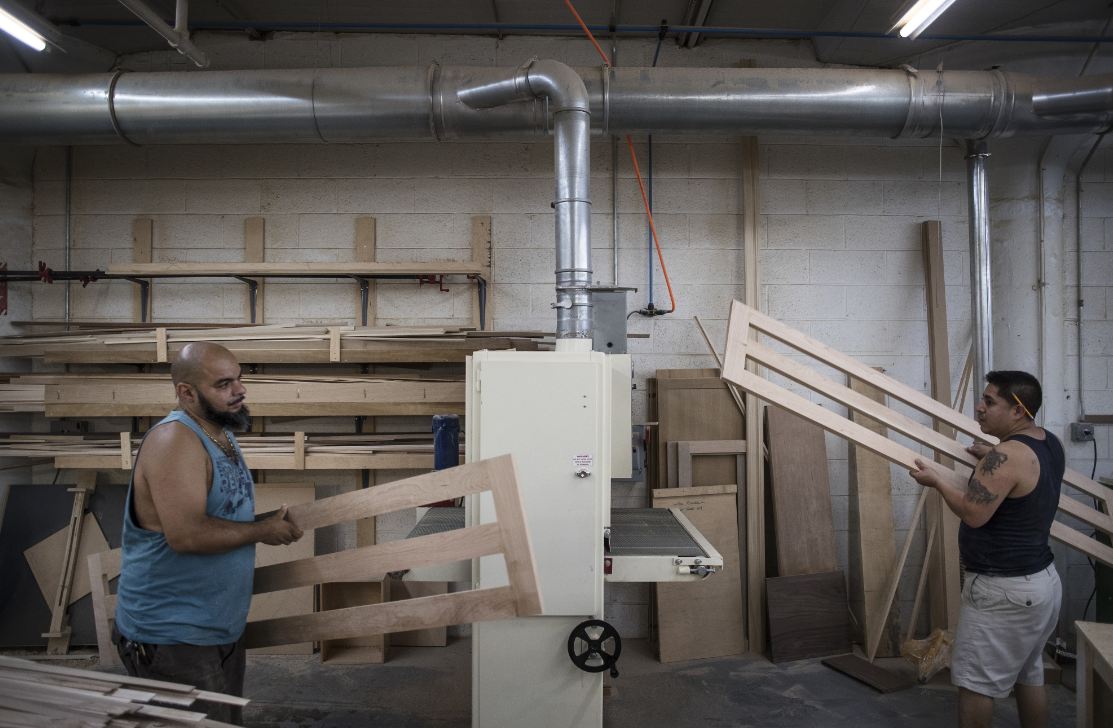Tariffs to take toll on US homebuyers


Additional duties will lead to higher prices for American consumers
The first representative from Beijing testifying at tariff hearings on the next $200 billion worth of Chinese goods said removing wood products from the proposed target list would shore up the interests of US businesses and help prevent American homebuyers from being priced out of the market.
In his testimony to the US trade representative's office on Tuesday, Wu Shengfu, vice-president of China National Forest Products Industry Association, said imposing additional duties of 25 percent on Chinese wood products would hurt US wood industries, while harming businesses in China.
Wu is representing Chinese producers of various wood products, including plywood, multilayered wood, laminated, vinyl and bamboo flooring, and cabinets, which are likely to be subject to high duties if the products are not taken off the USTR list.
The US is the largest importer of these products, which are valued at around $20 billion. In turn, Chinese wood-product makers imported at least $1.5 billion of US hardwood last year.
"There is not sufficient capacity in the next couple of years to produce many of these items that are currently imported from China," Wu said, describing a scenario if tariffs get through and China's exports shrink.
A cutback on Chinese imports, following hikes in price and cost as a result of higher tariffs, will affect US exports, because China simply will have lower demand for hardwood lumber and thus import less from the US, he said.
There has been a surging demand in China for US walnut and red oak. Red oak going to China accounts for 78 percent of all US exports of the product, Wu said in the testimony.
Shi Feng, secretary-general of the Chinese association, said the US companies, including retailers and designers, have benefited more from the wood-product trade than Chinese enterprises have.
"Just like in the clothes manufacturing sector, Chinese exporters of wood products have close collaboration with their US partners, which provide brands and designs," Shi told China Daily. The US companies will bear a "greater impact" if punitive tariffs take effect.
In an analysis on the impact of China tariffs on the US furniture industry, Thomas Russell of furnituretoday.com noted in a post last month that China shipped $13.6 billion in furniture to the US market last year.
"The question is which countries can equal China's production capacity, manufacturing technology and overall infrastructure? That will be the question the industry will face if the tariffs take effect," he said.
Wu of the Chinese association also said additional duties will lead to higher prices for US consumers and even threaten the dreams of many to own their homes.
In a 2016 study, the National Association of Home Builders estimated that for every $1,000 increase in the price of a home, about 152,903 households are priced out of the market for a median-priced new home.
That $1,000 line is easy to reach with escalating tariffs, Wu told China Daily after the hearing.
The wood products are used primarily in new-home construction and home remodeling, so any additional tariffs will have a major impact on those sectors in the US, especially in combination with other tariffs already in place, Wu said.
Homebuilders are facing rising costs for land, labor and materials, especially with new tariffs on Chinese steel and aluminum in addition to duties imposed on Canadian lumber last year, CNBC reported on July 17.
As for imports from China, hardwood plywood and multilayered wood flooring are already subject to additional tariffs under the US antidumping and countervailing duty laws, according to Wu.
The tariffs taken together will affect the US housing market and housing affordability, particularly for low-income families, he testified.




































